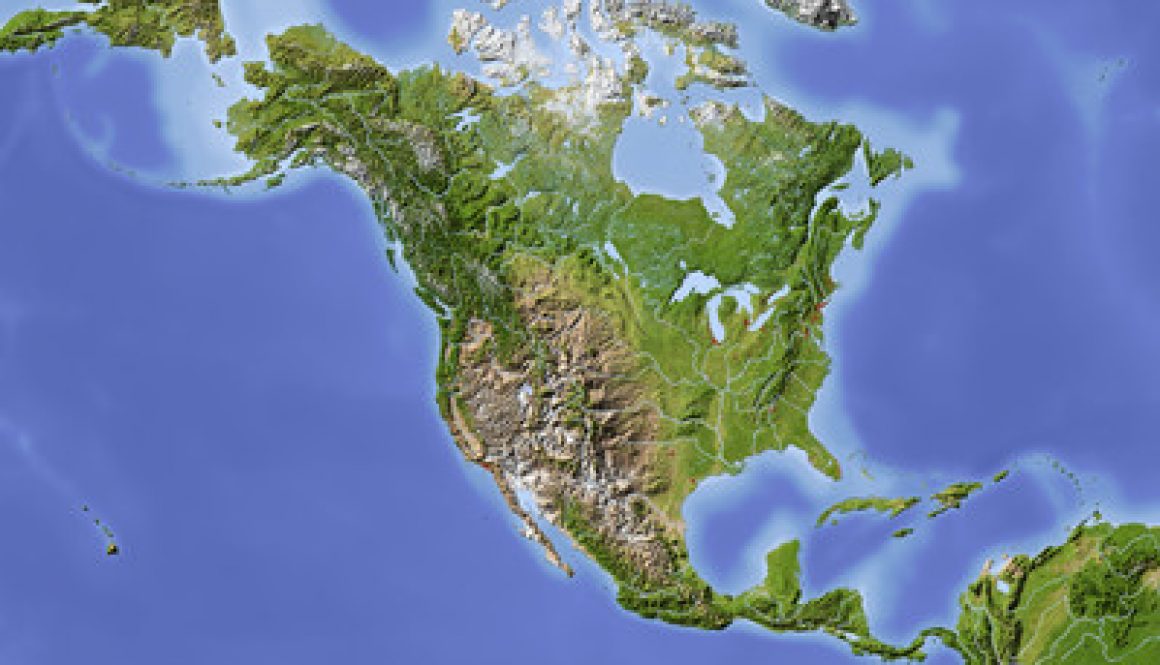Canada and Mexico Increase Lobbying for the Continuance of the NAFTA
The governors of Arizona, Minnesota, and Texas lobby for the continuance of the NAFTA, due to the benefits that their states have gained from the trilateral trade agreement.
The threat to the continuance of the NAFTA under the administration of Donald J. Trump is still present. However, the probability that the United States will suddenly exit from the world’s largest free-trade accord has been steadily diminishing. This is the case because negotiating teams from each of the countries are busy at work concretizing mutually agreed upon features. The possibility that the United States will leave the North American Free Trade Agreement is less likely at present than it was a month ago. This is so even though there could be some points of disagreement in the negotiations that could continue to threaten the accord. To optimize their positions for bargaining between the 6th and 7th rounds of discussions, the government representatives from Mexico and Canada recently met with key stakeholders in anticipation of the seventh round of talks in the city of Montreal on February 27th, 2018.
United States Mid-Terms and the Continuance of the NAFTA
NAFTA negotiators are aiming to bring treaty talks to a successful close before the United States mid-term elections take place this November. In addition to Arizona, Texas, and Minnesota, other states entities such as North and South Carolina, Pennsylvania, Ohio, Michigan, Wisconsin, and Nebraska have strong ties with both Canada and Mexico. Republican congressmen and senators in these states will be pushing the current administration for a continuance of the NAFTA.
A Significant Effort to Influence
During the course of 2016 and up to the present day, trade groups in Mexico have held approximately two hundred and fifty meetings with individuals and groups that are able to pressure the US administration to back a continuance of the NAFTA. Eighty of these gathering have been with congressmen, 35 have been with administration officials, 75 have been with representatives of the private sector, and sixty have been with governors.
The negotiating team from Mexico desires that negotiations be successfully concluded prior to their presidential elections that will take place in July of this year. Even though progress has been slowly gained, each party to the dialogue has recently expressed that the progress related to the technical chapters of the accord has been positive. While on a political level, however, exchanges, especially between the US and Mexico, has been lacking. A recent contentious discussion between Mexican President Peña Nieto and President Trump is illustrative of this point.
To the contrary of the situation in Mexico, the governments in Ottawa and Washington believe that there isn’t a need to wrap up the agreement renegotiation soon. This is the case mostly because the United States does not want the negotiations to take place during the US mid-term election campaigns.
Because of the way the North American Free Trade Agreement has benefited the United States’ economy (especially in the agricultural sector), it is reasonable to conjecture that the US will not pull out of the agreement and will stand behind a continuance of the NAFTA.
State Officials in the US are in Favor of a Continuance of the NAFTA
The most recent meeting at which Canadian and Mexican trade officials have exercised their joint lobbying activities for the continuance of the NAFTA was at the winter gathering of governors from most of the US states. Both countries were able to participate in meetings with thirty-three of chief state executives that were in attendance. Representatives from these entities met with President Donald J. Trump and Vice President Mike Pence on Monday, February 26 and Tuesday, February 27, 2018 to voice their support for the continuance of the NAFTA.
As for backing of the continuance of the NAFTA by government leaders from the State of Minnesota, Governor Mark Dayton pointed to the success that Minnesota companies have had in gaining access to export sales to Mexico’s agricultural and manufacturing sector. In a communication to US President Donald Trump, Dayton voiced his constituents’ support for the continuance of the NAFTA and urged that the US government successfully bring negotiations to an end in a “timely manner.” Minnesota-based commercial exchange with Mexico and Canada reached a total of US$ 6.4 billion in 2016.
Particularly, the governors of Arizona, Minnesota, and Texas expressed their wish that the United States continues to be a party to the NAFTA trading bloc. Doug Ducey, Arizona’s chief executive, communicated that Arizona desires “more trade than less” with its neighbors to the north and south. In anticipation of the meeting with the President and Vice President, Ducey participated in meetings with Canadian and Mexican government officials. He expressed his wish that the agreement be renegotiated with Carlos Manuel Sada, Mexico’s undersecretary for North America, and with government representatives from Canada’s two largest provinces, Quebec and Ontario. During their meetings, Ducey cited the fact that five percent of Arizona’s jobs depend upon continued trade with its southern neighbor, Mexico.




